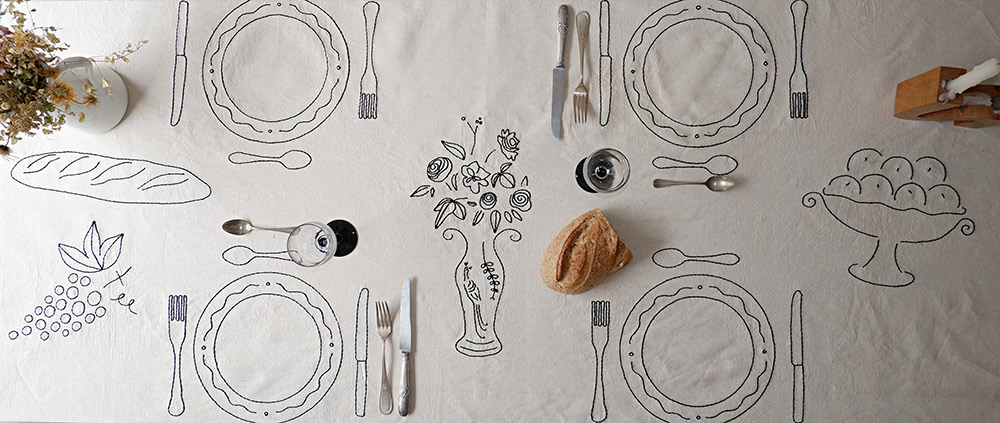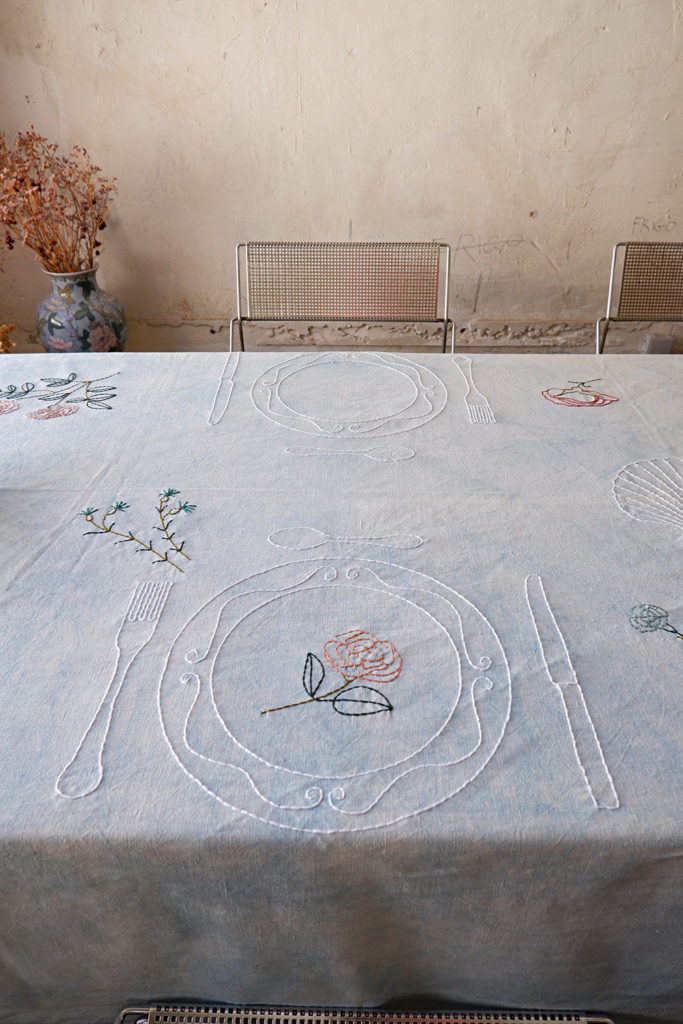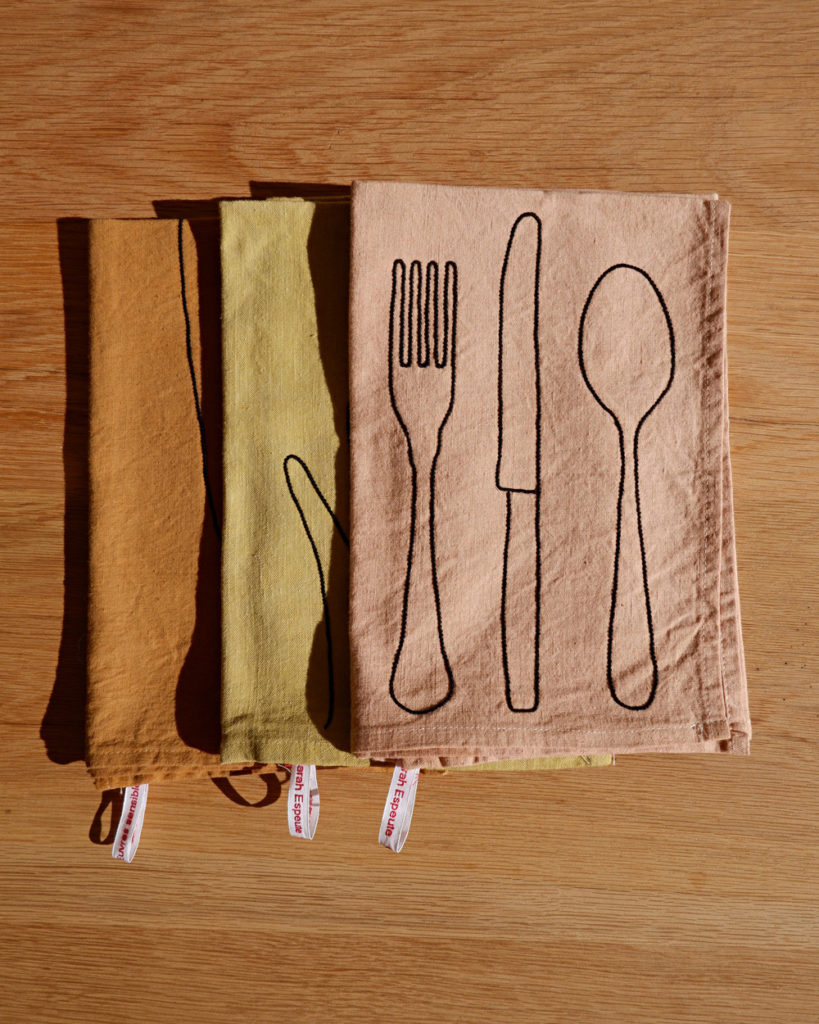French artist, designer, and owner of Œuvres Sensibles, Sarah Espeute, has fond memories of gathering around her family’s dining table for every meal as a child. Her father collected a large assortment of old second-hand French Digoin Sarreguemines plates that they would eat from daily— for special occasions, they’d select the most beautiful ones. Espeute’s mother taught her to set the table, “especially to put the fork on the right and the knife towards the inside on the left,” she astutely recalls. These pleasant remembrances are present throughout Espeute’s work. Her designs are minimalistic and whimsical, and it’s clear to see how much careful handiwork goes into each one—whether it’s a napkin with an embroidered outline of a fork and knife (a nod to her mother’s lesson) or a table runner that features hand-stitched pears.

Espeute finds inspiration in the authenticity of everyday life, whether it’s in the arts, cinema, or architecture. “Many moments visually touch me, and I try to visually transcribe that in a personal way,” she says. “There must always be a meaning, a truth, a sincerity for me to like it.” Even the name Œuvres Sensibles (which translates to “sensitive works”) was inspired by Éric Rohmer’s film titles, which Espeute finds poetic. “I like the name ‘Sensitive’—it expresses a very personal perception of things. I want my creations, whatever they are, to have a soul, a sensitivity.”
Become an S Insider
The latest in fashion, beauty, design, and arts & culture.

Espeute’s collections are also sustainable. As part of her appreciation for old materials that contain their own family histories, she sources high-quality antique linen and cotton from individuals all over France to create her pieces—most of the fabric is 50 to 100 years old.
Espeute learned to embroider at school when she was just seven years old and, later, she often used textiles in her applied art studies—which led her to make her own curtains and cushions for her home.
During the COVID-19 lockdown in 2020, Espeute started making and selling embroidered trompe l’oeil tablecloths. As more orders rolled in, she decided to subcontract artisans in France and create a business out of it. Today, Œuvres Sensibles uses two types of embroidery, Marseille and Cornely, which are completed in Paris on a manually operated machine from the 19th century.

When she’s not experimenting with new designs, Espeute can be found entertaining friends around her own dining table in her apartment. “I love putting out my antique plates when it’s my turn to host.”

